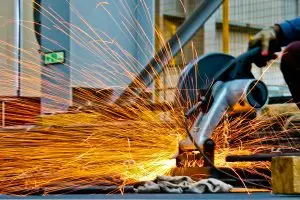1. Beis and the NDA release AGR decommissioning notice
The Department for Business, Energy & Industrial Strategy (BEIS) is working with EDF Energy and the Nuclear Decommissioning Authority (NDA) to plan for the decommissioning of EDF Energy’s nuclear stations. They are considering how to deliver the efficient and cost-effective decommissioning of Advanced Gas-cooled Reactors (AGR) and will also look into the stations’ ownership and management. The work is expected to be finished by summer next year.
(Department for Business, Energy & Industrial Strategy, Advanced Gas-cooled Reactor (AGR) decommissioning, 9 September 2019, Link)
2. EDF shares hit after component scare
On Tuesday 10 September 2019, EDF’s shares faced the biggest daily fall in nearly two years. Its share price closed down 74 cents, or 6.8 per cent, at €10.12 on the Paris stock market. This was the result of Framatome reporting ‘a deviation from technical standards governing the manufacture of nuclear reactor components’ in several EDF plants. A spokesman for the French Nuclear Safety Authority said that about 20 functioning reactors built after 2008 are believed to be affected. This has raised questions over the French nuclear industry’s future.
(Reuters, French regulator puts EDF Flamanville nuclear plant on safety watch, 11 September 2019, Link)
3. Hinkley Point C will use the world’s largest crane
Hinkley Point C nuclear power station site is about to start using the world’s largest crane, ‘Big Carl’. The crane can reach 250 meters, which is higher than the tallest tower in Canary Wharf, and can lift 5 000 tonnes in a single lift. Rob Jordan, Hinkley Point C Construction Director said that the crane ‘allows us to innovate in the way we build the power station, lifting complete pieces out of our factory bunkers and into place across the site.’ The use of ‘Big Carl’ reflects a trend towards modularisation in large-scale construction.
(EDF Energy, World’s largest crane goes on show at Hinkley Point C, 12 September 2019, Link)
4. Dounreay visited by the CORWM
The Committee on Radioactive Waste Management (CoRWM) has completed a visit to Dounreay, Britain’s former centre of nuclear fast reactor research and development. The visit was designed to update officials on the treatment and storage of higher activity radioactive waste. Proposals for the recovery and treatment of radioactive waste around the Shaft and Silo were also shown to the members as well as presentations on the decommissioning progress. Sir Nigel Thrift, Chair to the CoRWM commented on ‘the impressive levels of commitment and professionalism of the whole team at Dounreay.’
(Committee on Radioactive Waste Management, Committee on Radioactive Waste Management visit to Dounreay, 11 September 2019, Link)
5. Concerns raised over Japan’s plans to dump radioactive water into the pacific
Japan’s environment minister, Yoshiaki Harada, has said that water from the damaged Fukushima nuclear power plant will soon have to be released into the Pacific Ocean. Over one million tonnes of contaminated water has been collected from the plant, but Tokyo Electric, Tepco, is running out of place to store it. The proposed solution is to drain the water into the sea and dilute it. Vocal opponents to the plan include South Korea who last month summoned a senior Japanese embassy official to explain Japan’s disposal plans.
(The Independent, Japan to dump radioactive water from Fukushima nuclear disaster into Pacific, minister says, 11 September 2019, Link)
Brevia Consulting provides straightforward political advice and support to businesses and organisations.
Discover how Brevia can provide public affairs support to your organisation by calling the Brevia Energy Team on 020 7091 1650 or emailing contact@brevia.co.uk.




